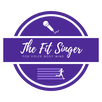|
Back in the olden days when I was a child, it was unheard of to have singing lessons before puberty. Even now there are some teachers that say children should not take lessons before they are teenagers and if you want music lessons before then you should focus on piano. There are a few big problems with that mode of thought. Children sing all the time.Children are singing pretty much from their first cooing sounds as a baby. Daycare, pre-school, children’s TV shows have children learning songs even before they formally hit school. It’s a great way to teach language. There are learning songs, transition songs, clean-up songs. As children get a little older they may start singing along to the latest pop songs or Disney songs. Or they may want to be the next Annie or Matilda. If they are singing all the time then wouldn’t it make sense to make sure they are doing it right? Especially if they are singing these harder songs or expressed a keen interest in singing, When you consider that in these songs they are imitating adult singers with voices that may have a huge range, do challenging technical effects and are also amplified. This often leads an untrained singer to pushing their small voice. Which leads me to the next point. Children’s anatomy is different.The size of the larynx (voice box), the vocal cords, the throat space, the lung capacity, They are all evolving. And developing. This is one reason that some of the old school teachers don’t want to work with young children. But it’s also one of the reasons children should be taking lessons. Children need to be guided to age appropriate songs. Songs that will work with the limited range and technical ability of a pre-pubescent voice. Ariana Grande is not the artist to emulate. Age appropriate lyrics are also a consideration. Sure, the lyrics may go over the top of their heads, but do you really want to see your child strutting around like Doja Cat? It may make a funny TikTok, but really not the best role model for a child. And those kid opera singers on the talent shows may sound impressive, but they are not doing their voices any favours. Trying to mimic those sounds can lead to excess tension that can result in vocal injury down the line that could nip their operatic dream in the bud. Don't they need to develop piano skills first?Sure piano skills are great to have, but if getting your child to practice is more painful than getting a root canal is it worth it? Some of the reasoning behind taking piano lessons is that they learn to read music and develop musicianship skills. With a well-designed singing lesson plan this is easily achieved. If your child has a greater inclination to sing with no desire to play piano, then why not nurture that. They will still gain valuable note reading and musicianship skills, but do it in a medium that excites them. And maybe that will excite them enough to take piano lessons down the line. I’ve seen that happen many times! Another bonus of singing vs. piano is that you won’t have to invest in an expensive instrument. So how young can they start?If your child loves to sing then they can start taking lessons as young as five years old (generally I will take them as they are going into kindergarten, so some children may still be 4 years old). Of course, different teachers may have different preferences. With the right guidance your child will get a quality musical experience they can get excited about. And parents can rest assured that their child is reaping the benefits of music education. In fact, studies have shown that a good quality music education can improve English and math scores by 20%. Group or Private lessons?Now the question is should they take group lessons or private lessons. This can depend on the maturity and personality of the child. One-to-one lessons can require more focus and require more practice time. Some kids are fine with that even at a young age. Others may benefit from group lessons, where there is less focus on practice between lessons and the group environment with peers can feel more like fun and games - while the teacher sneakily leads them in learning basic skills. I’ve had children of 5 years of age that have more focus and eagerness to learn than some 9 year olds who can’t stand still for 30 seconds. Of course, learning styles play a huge role in this and private lessons are always individualized to suit the needs of the child, so no matter what the learning style they enjoy their lessons and learn songs that mean something to them. In conclusionChildren absolutely can start singing at a young age. It’s so important to have guidance from a qualified teacher who understands children’s vocal anatomy.
This is probably the biggest reason some teachers don’t teach young children -they simply choose not to learn about the young voice. But that doesn’t mean your child is too young for lessons. Just like you wouldn’t see an orthopedic surgeon for a stomach problem, voice teachers also have specialties. When you find a teacher who specializes in teaching children your child will get the guidance they need to use their voices safely, develop musically, and learn to love their voices for life! If your child loves to sing and you’re ready to look into lessons then book a free consultation, your Vocal Discovery Call, here and we can see if private or group lessons are the right fit for you. Reference: https://www.researchgate.net/publication/240725654_Examination_of_Relationships_between_Participation_in_School_Music_Programs_of_Differing_Quality_and_Standardized_Test_Results
0 Comments
My friend Kate, a professional singer for a decade, had a rude awakening about 5 years ago. In the middle of singing a song her voice snapped. She had a vocal hemorrhage. On closer inspection it turned out she also had pre-nodules and significant stiffness in her right fold. This is the stuff singer’s nightmares are made of. She was told that much of this damage was caused by acid reflux. The thing is many singers are not even aware of their reflux. When you feel heartburn or have a distinct backflow of acid to the back of your throat, you can be sure you are suffering from Gastroesophageal reflux (GERD), but many singers don’t feel this, yet they may still experience Laryngopharyngeal Reflux (LPR). LPR occurs when stomach contents come up the throat in a gaseous form or as a mist. This allows for easy access to the larynx as the mist can be inhaled. And you won’t even know it! It’s estimated that 10% of the U.S. population suffers from LPR. However, LPR occurs in as many as 50% of individuals with voice disorders. Though it was previously thought that the acid was doing the damage, more current research suggests that it is actually not the acid, but inflammation due to the action of pepsin. What is Pepsin?Pepsin is a digestive enzyme, specifically for the breakdown of protein. Guess what the pharyngeal and laryngeal tissue is made of? That’s right. Protein. So the pepsin is digesting your tissue! Gross!!! Right? The stomach has a special lining that prevents this from happening, but outside of the stomach all tissue is fair game for the pepsin. To make matters worse, Even if pepsin stops digesting and lays dormant, it can be reactivated by acid. So that coke or orange juice you drink can be reactivating it, starting the cycle all over again. What does it mean for your voice?If you have LPR you may be experiencing inflammation in the vocal folds and even a thinning of the epithelial layer of the vocal folds. This puts you at greater risk of nodules, polyps, and hemorrhages when you sing. It also increases the risk of laryngeal cancer (though this is still a very rare form of cancer at 1% incidence). If you have a very active singing life, this is a disaster waiting to happen. Look out for the symptoms:
See an ENT if you have any of the above issues that are not associated with a common cold and persist for more than 2 weeks. What can you do for your voice?One thing that you should avoid is taking antacids or proton pump inhibitors (PPIs). These may give temporary relief, but neither is meant for long term use and can actually exacerbate the problem.
Currently acid reflux is the third leading cause of drug prescriptions. In fact, though PPIs like Prosilec and Nexium are heavily advertised in the United States they come with risks. These drugs have many side effects, can create dependencies and there is little if any clinical information on use beyond a year. These drugs are really only meant for the most severe forms of reflux after all other methods to control it have failed. Though there are lots of things that you can do to alleviate reflux, in my experience working with singers it boils down to three main things you can do to prevent or reverse it: Nutrition Meal timing Stress management 1. Nutrition Paying attention to what you eat really does matter. Not just trigger foods, but making sure you are overall eating a healthy diet. When we aren’t eating optimally, we can be causing nutritional insufficiencies that lead to chemical imbalances in the body that can contribute to reflux. There is now evidence that a whole food plant-based diet is as effective as PPI therapy to treat LPR and GERD. 2. Meal timing Timing when you eat can prevent too much pressure being placed on the stomach that can result in back pressure on the esophageal sphincter. That means allowing sufficient time before activities such as exercising, singing and sleep. One to two hours before should be sufficient to empty the stomach. 3. Stress management There is some debate whether stress actually can cause acid reflux, however, when we’re stressed we’re more likely to overeat, drink alcohol, smoke and eat unhealthy food, all of which can trigger acid reflux. Stress can also cause acid reflux to feel worse. Some scientists think it may be because changes in the brain cause pain receptors to be ramped up, so you are more sensitive to acid. There is also a depletion of the hormone prostaglandin in the stomach when under stress that helps protect the stomach lining from acid. Increased stress can also affect the nerve function of the stomach, which can result in the inappropriate relaxation of the esophageal sphincter. So having strategies in place to help with stress are crucial:
All of these play a big role, not only in managing stress, but in building your capacity to handle stress. By taking these steps, Kate was able to rehabilitate her voice without surgery. Her folds are now pristine. These are the steps that we take in the Resilient Singer Method, as well. If you suspect you have reflux get checked by an ENT, and if you want to get back on track vocally, you may be interested in a Singer’s Wellness Strategy Session to discuss your options. You can book your FREE 45 minute Singer’s Wellness Strategy Session here. I used to love baking. One thing that fascinated me about baking is the chemistry of it. You have all these ingredients that you have to put together in a certain order in specific quantities to get the final baked deliciousness. One of the hallmarks of a good baker is getting a perfect meringue. Light and airy, crispy on the outside with just a bit of chew on the inside. But there are so many things that can go wrong along the way. No fat can touch them, so that means that you can’t have a speck of yolk in the egg whites. No oil residue in the bowl or on the beaters. Otherwise the egg whites won’t beat up properly. Then the beating itself - you have to add the sugar just so, so they don’t end up grainy, and get the whites to form perfect peaks. Beat too long and they start disintegrating again. Then the preparation of the sheets for baking - it has to be parchment paper. Oven temp and baking time. They ALL matter. The point of all this is that, like with getting the perfect meringue, looking after your voices so that you have a well-balanced instrument has a lot of components to it, too. And like the meringue a lot of things can go wrong along the way. These are the stressors in our lives. Often when we think about stress we think about the emotional overwhelm that we feel from situations, but there are actually many other stressors that you may not be aware of and may not be causing an obvious fight or flight response. Accumulated stress can cause the throat to constrict and prevent you from being able to fully and freely express yourself through singing, so it’s important to stay on top of it. There are four main categories of stress. Psychological stress
Pyschosocial stress
Physical stress
Psycho-spiritual stress
Psychological, psycho-social and psycho-spiritual stress are clearly in the realm of the mind and the first thing most people think of when you mention stress. The mind and body are often thought of as separate and because of that physical stressors are often overlooked in how they impact the mind and voice. When talking about stress it is more usual to talk about the impact stress has on the body than the other way around. However, a preliminary study showed that physical and psychosocial stressors interact to increase stress in ways not explainable by the stressors alone. And over time these acute stressors can accumulate to cause chronic stress, more tension, illness and vocal issues. Increasing your capacity for a reliable voice That’s why looking after physical health is so important to able to cope with stress and sing with a reliable resilient voice. The stronger and healthier your body is, the greater your capacity to deal with the stress of a busy singer’s life. And let’s face it, the past year with the pandemic has been a very stressful one. Are you looking after your physical health to improve your stress resilience for freer, more confident singing? If you’d like to explore a holistic approach that includes work on body, mind and voice then download my free e-guide Top Tips to Release Tension and Lift Energy for Singers. Resources:
https://www.frontiersin.org/articles/10.3389/fnbeh.2020.00063/full https://www.mentalhelp.net/blogs/types-of-stress-and-their-symptoms/ So much of vocal and physical health is all about habits and actions, but where do these all stem from? What if we don’t have to make as many changes as we think we do? What if there was one powerful thing that makes a lot of difference? That thing is mindset. Mindset is sometimes called “the story we tell ourselves.” It’s our attitude toward things in our life. And we have control over our mindset. For singers mindset is a powerful tool to help free your voice for more vibrant, confident singing. And yet, it's mindset that can hold back so many singers from complete artistic freedom. And research is showing that mindset may be far more powerful than we thought. Very interesting health mindset studyHere’s a quick story about a fascinating study. Researchers at Stanford University looked at a bunch of people's health and wellness lifestyle habits, as well as health markers. What they found was that the people who thought they were a lot less active had a higher risk of death than the general public. And, they also had up to 71% higher risk of death than people who thought they were more active. Even if they actually weren't less active! How is this even possible that people who simply thought they were less active had higher risks, even if it wasn’t true? There are a couple of ideas why. One is that maybe if we feel like we're less active, it may make us feel more stressed. And stress isn't good for our mental or physical health. Second, there may be a bit of a mind-body connection where the body embodies what the mind visualizes. Researchers don't know why, but what matters is that there is a good mindset. So, let me give you a couple of strategies to boost your mindset for healthier, more confident singing. Health mindset strategy 1 - Recognize your inner voice.No one is perfect. That's just a fact. No one sings perfectly and almost no one is perfect with their self-care seven days a week. It's inevitable that obsessing over the quality of our sound, how and what we eat or hydrating enough isn't necessarily a great mindset to have. Yet, too many singers feel they are not good enough, always assume what others think of them and their voice, and they discount the positive to focus on the negative, especially in performance situations. It can bring on shame, and guilt - none of these are great ways to get be healthy in voice, body or mind. We want to get healthier by making better choices and building better habits. And these are usually best done incrementally - one step at a time. So, learn to recognize that "voice" that's taking a black and white approach where everything is good or bad. Then you will be able to see the triggers and anticipate it. Health mindset strategy 2 - Make a choiceWhen you're striving to make healthy lifestyle changes to support your instrument it's easy to fall into the trap of judging yourself. For example you may be eating clean during the week, but then have a gluttonous weekend. And that's not awesome because the mindset starts to lay in with the judgement that you've failed or that you aren't good enough. The thing is you have a choice. You can listen to the “voice” either judgmentally or as a challenge to step up your skills or effort. Just live as though you're trying to do well and self-nurture yourself every single day. Like you care about your voice and wellness. This will empower you to make better choices, instead of perfect choices. Health mindset strategy 3 - Talk back to your inner criticWhen you find yourself stuck in negative self-talk, it's not always a matter of aiming for good enough because that inner voice keeps screaming at you. And when you’re constantly bombarded with this kind of talk, it just adds to the emotional stress and you end up in a vicious cycle of stress and tension that’s not helping you free your voice. So it's time to talk back. If your negative Nelly voice is saying, “What if you fail—you’ll be a failure”. Then you talk back to it and say, “Most successful people had failures along the way.” Re-framing your thoughts in this way to a more positive context will allow for growth. ConclusionMindset for health can be a powerful tool that can be applied to singing. There’s a proven mind-body connection that research can measure. Thinking positively, and dropping the black/white and good/bad labels, can help you reach your goals for performance and vocal health. How is your mindset for singing? Which of these tips resonate with you the most? How are you going to implement them in your life? Let me know in the comments below. References:https://www.health.harvard.edu/blog/mind-over-matter-how-fit-you-think-you-are-versus-actual-fitness-2017081412282
https://www.health.harvard.edu/blog/making-health-decisions-mindsets-numbers-and-stories-201112123946 Valentine’s Day – the perfect time to talk chocolate! And share a decadent chocolate recipe that only has 3 ingredients! Chocolate has had a bad rap as as a fattening indulgence. As singers, we're often told to avoid chocolate prior to singing due to increased mucus production. For both of these traits it's mostly due to the dairy and refined sugar being present in most chocolate. This may be great news for you because cacao has many awesome benefits! The best benefits of chocolate can be found in raw cacao powder, raw cacao nibs and raw cacao beans, along with dark cocoa powder and very dark chocolate, containing at least 80% or higher cacao content. Raw chocolate will contain many more antioxidants than heated forms like standard cocoa powder or processed chocolate bars, so stick to the raw forms whenever possible. Raw Cacao has a huge number of health benefits that will have you singing great! This includes increasing the release of endorphins which can help to create a ‘feel good’ buzz and help improve your mood. Perfect before heading out on stage. Cacao is also rich in powerful antioxidants called flavonoids, which are shown to have cardiovascular benefits, including improvements in cholesterol levels, blood pressure, blood clotting, coronary artery function, and insulin sensitivity. It can be a boon to singers to stave off those nasty colds, flu and sore throats that threaten every singer. Cacao is a powerful antioxidant that boosts the immune system. It also contains a number of important vitamins & minerals such as magnesium, calcium, zinc, potassium, B-complex vitamins and iron. Raw cacao is made by cold-pressing un-roasted cocoa beans. The process keeps the living enzymes in the cocoa and removes the fat (cacao butter). Then, you heat it to a certain temperature and enjoy as a warm or hot drink. When consumed regularly, raw cacao has the ability to help you feel more energized, boost your concentration and fuel your body's immune system. Did you miss the boat and ended up with a cold that’s now turned into a persistent cough? Cacao has got you covered there, too! Skip the honey and lemon — and grab some chocolate. Researchers claim that cacao has demulcent properties, which means it relieves inflammation or irritation. Essentially, it's stickier than typical cough syrup, and better forms a coating to protect the nerve endings in the throat that trigger the urge to cough. Just suck on a square of extra dark chocolate so that it has time to coat the throat. To keep with the Valentine’s mood I have a great simple recipe for Raw Cacao Truffles to share with special someone. (Did I mention that cacao also has benefits for fertility?) Enjoy! Raw Cacao TrufflesIngredients 1 cup raw cashews 1/4 cup cocoa powder (or raw cacao powder) 1 cup dates, pitted (I used halawi dates, but medjool would work just as well) 2 tablespoons water extra cocoa or cacao powder, for dusting Directions Grind the cashews in your food processor until they have a flour-like consistency, add the 1/4 cup cocoa powder and pulse. Toss in the dates and water and process until a ball of dough starts to form. Shape into 1 inch balls with the palms of your hands. Dust each truffle with cocoa powder, and chill until you’re ready to serve! Resources: http://health.allwomenstalk.com/benefits-of-chocolate-for-your-immune-system https://www.ncbi.nlm.nih.gov/pubmed/21894553 http://www.goodzing.com/remedies/maren-lander/raw-cacao-is-a-great-immune-system-booster http://www.goodhousekeeping.com/health/wellness/news/a36300/cough-cure-chocolate/ https://www.health.harvard.edu/newsletter_article/cocoa-reduces-inflammation-associated-with-heart-disease February happens to be Heart month in a number of countries, Canada, United States and UK all have devoted this month to raising awareness for heart health. I think this is an important topic for singers. After all your body is your instrument and if all parts of it are healthy it will serve you better. A couple of years ago I was interviewed about singers’ health and one of the topics that came up for discussion was why did some of the great singers of history like Enrico Caruso lead less than healthy lifestyles – the so called “good life” of rich foods, smoking and alcohol – yet they had these amazing voices? The truth is a healthy lifestyle will not necessarily make you have a great voice. This comes from genetics, dedication to honing an impeccable technique, and the ability to communicate to and touch an audience. What a healthy heart will give you is the optimization of your instrument, your body, to be able to have the energy, stamina and health to deal with the demands of a singer’s life. It will pump blood full of nutrients to you larynx for optimal functioning and recovery. And pump blood to your brain for an alert mind. It will keep you healthy so you won't miss a gig. It will get through hours of rehearsals in the evening after being at your day job 9 to 5. It will give you the endurance to be weeks on the road performing. It will let you sing well into your twilight years. And here’s the thing, many of the GREAT singers did not make it to their twilight years. They died young. If we understand how lifestyle choices can affect our heart health we can prevent that fate and look forward to a long life of singing. Risk FactorsHeart disease is the number one killer in the world with 17.9 million deaths a year. Risk factors include:
Aside from Enrico Caruso, whose death at 48 years of age is mostly attributed to his smoking, drinking and poor eating habits, there are many other great singers of the 20th and 21st century who died of heart disease. Sadly most of them died while still in the prime of their careers. Though it is impossible to conclusively say whether their deaths can be attributed to lifestyle without knowing more of their personal lives and health habits, given the above statistics it is quite possible that these deaths could have been prevented through lifestyle changes. Of course this is not limited to classical singers. Many contemporary artists have suffered early deaths due to lifestyle as well. One demographic that seems to have a very high proportion of young deaths is hip hop and rap artists. Some dying of heart disease in their 20s! This is largely due to the unhealthy relationship that they develop at a young age growing up in food deserts (impoverished areas where there is limited access to affordable and nutritious food, especially fruits and vegetables). This was highlighted in the film Think Rich – Health is the New Wealth. It is heartening to see that many of these artists are now leading the charge to bring awareness to the benefits of a healthy, holistic lifestyle. In the past year with COVID-19 it has become apparent that those with underlying cardiovascular conditions are at greater risk of dying or having severe complications from the virus. And the complications from that for singers can be devastating. What you can doYou are a singer. You have a passion to share your gift. You have choices to make. Some of the risk factors such as age and family history we have no control over. However, most of the risk factors are within your control. A healthy lifestyle can go a long way to reducing most of the risk factors. Things you can do are:
Heart and stroke disease is preventable and some evidence even suggests that with proper nutrition and lifestyle it is reversible. It’s never too early to start on your heart health either. Arterial plaque build up can start in children as young as 10 years old and by the teens there may be plaque build up that will hang around through your life and potentially only get worse if lifestyle changes are not made. If you want to be a resilient singer that will be able to sing for many more years to come, then you can book your free Singer’s Wellness Strategy Session with me. You can book it here. May you share your gift of song with the world for many, many more years to come! Resources:https://www.heart.org/en/health-topics/heart-attack/understand-your-risks-to-prevent-a-heart-attack
https://www.cdc.gov/coronavirus/2019-ncov/need-extra-precautions/people-with-medical-conditions.html http://www.imdb.com/title/tt6285404/ https://www.ncbi.nlm.nih.gov/pmc/articles/PMC2100124/ Disclaimer: The Fit Singer does not give medical advice nor claim to cure any medical conditions. If you do have a medical condition, any dietary, exercise or other lifestyle changes should be made under the supervision of your family doctor. Before I get on to the main subject of this post I want to share a story about my son, Misha. His plight over that last year mirrors what many singers have been going through. As an elite fencer on the Canadian team, he was on track to qualify for the Olympics only to have everything cancelled last March.. No travel, no tournaments, even limited ability for training (unfortunately, you can't fence online, unlike singing, which has blossomed online). But now the buzz is that qualifying will be happening by April, so Misha is setting off on his first trip in 10 months to train in Vancouver and then will be heading out to Montreal to be with the National Team. Exciting, but also so worrying these days. Now that we find ourselves in the middle of January we are at that time of year, when we just want things to be over. We certainly want COVID-19 to be over, we want the travesty of the U.S. election to be over, and we want winter to be over. Mid-winter has a number of challenges for the singer. Less sunlight, cold temperatures and dry air from heating (or if you're in the prairies you get the dry cold). This can spell trouble for the voice from dried out vocal folds to greater risk of an upper respiratory tract infection A frequently asked question by some of my students is “How do I keep from getting sick?” That is an excellent question that every singer needs to ask, this year more than ever, since COVID-19 can hit the respiratory system hard. Wearing masks, staying in seclusion and handwashing is certainly one way to avoid respiratory infections. Though necessary during these pandemic times, these are actually not the only course of action we should be taking. Even before the pandemic we were living in an overly sanitized world and this has actually had a negative influence on our immune systems. I used to be one that frequently got ill, if not before or during a performance than definitely after. This had a lot to do with stress and the levels of stress hormones in my system. Even when I wasn’t performing I would get frequently ill. That all changed when I increased my fitness level and optimized my nutrition. These “discoveries” are what has prompted me to become a personal trainer. nutrition and stress resiliency coach. I love sharing my knowledge and experience with not just my students, but with other singers. So here are my top tips for preventing illness. Now getting fit and cleaning up your nutrition are journeys that will take time and will be individual, but here are 5 things you can do now to help reduce the risk of infection. 1. Make time to de-stressStress is a big part of getting ill. Our adrenal systems are in overdrive, but can only do it for so long before giving out. When they do you will be hit hard. Whether it’s making time to meditate, eating mindfully, taking a hot bath, reading a good book or just vegging out in front of the TV; commit to at least an hour a day in some activity that will calm you where you allow yourself to not think about any of the myriad things you need to do. 2. ExerciseDo a physical activity for at least 30 minutes every day. If you are a beginner, this might start out as walk. As you progress, keep challenging yourself and trying different activities. Keep your body guessing! Even though you may be fitter than you were before, if you keep doing the same thing your body adapts and will plateau not just with physical results, but with immunity as well. 3. Make a green smoothie every dayThis was a game-changer for me. Just throwing a handful of spinach or kale can make a huge difference. You are getting a burst of nutrients in an easily absorbable form. Fruits are full of vitamins such as C, A and some B vitamins, and the greens that are full of minerals such as iron, magnesium, manganese, copper, calcium, and vitamins A, C, B6, and folate (exact nutrients will vary with choice of fruits and greens). Both also contain other phytonutrients and of course, fiber (over 90% of Americans fall short of meeting their daily fiber intake.) Whole foods are always preferable to supplements. 4. Humidify and hydrateKeeping your vocal folds and the rest of your respiratory tract well hydrated from the inside out will help maintain a protective mucosal layer to prevent the entry of viral or bacteria pathogens. Central heating may keep you toasty warm, but it dries out the air which can suck the moisture right out making you more susceptible to infection. Make sure you're indoor spaces are at about 50% humidity by running a humidifier or use a personal nebulizer with an isotonic saline solution. Humidifying will take care of the upper surface of your vocal folds, but you what to also be hydrated deeper to help flush out toxins. The cold and dry may require that you increase your daily water intake. 5. Get plenty of sleepThis is the time of rest and restoration of the body. It allows for the brain to drain toxic build up and the rest of your body is healing and repairing, the toxic by-products of stress can also be removed from your system. The average adult requires 7 – 9 hours or sleep.
Here’s a BONUS tip. If you find you are very stressed and need a little extra help, an adaptogen supplement may be helpful. Adaptogens are a unique group of herbs used to improve the health of your adrenal system. By tonifying and rejuvenating the entire adrenal system, adaptogens promote the healthy regulation of cortisol the “stress hormone”. This special class of herbs improves strength, energy, stamina, endurance and mental clarity. Here is a list of a few adaptogens: Maca root, astragalus root, ashwagandha root, maitake mushroom, cordyceps, reishi mushrooms, holy basil, shisandra and ginkgo. If you feel you need some help de-stressing or boosting your immune system then I would love to help. You can contact me to book an Introductory Health Coaching session. Just email me at [email protected] for more information. The past year has packed a wallop. So many things happened, so many goals and dreams set aside. 2021 is starting as a year of hope with new vaccines already starting to make the rounds.
Things won’t be back to normal for a while yet, but it doesn’t mean you shouldn’t dream, make some goals, plan them out and start acting on them. Do you make new year's resolutions? I’m not a big fan of New Year’s resolutions myself. When I feel my life is in need of a change I start then and there. Lots of my long term goals and dreams didn’t start in January. There are always new things about myself I would like to work on - MY HEALTH, RELATIONSHIPS, BUSINESS – if I waited for all of it to start January 1 I would have missed opportunities and it would have been far too intimidating to tackle it at all. OUR IDEAS OR NEED FOR CHANGE DON’T SPARK SPONTANEOUSLY ON A GIVEN DATE. That being said there are always cycles in the year that can make it feel like a fresh start - a new week, a new month and yes, a new year. Many people look to the New Year for a fresh start (and despite what I said there is one new habit I would like to develop starting January 1, which I’ll tell you about later). The New Year makes for a fresh new chapter in our lives. Unfortunately, it’s often a fairy tale chapter of all the wonderful things our life will be with the changes we will make. And that fairy tale bubble usually bursts by Valentine’s Day. The most commonly broken resolutions are:
So how can you make your resolutions stick - no matter when you decide you will start? Don’t overdo it. Choose only one to three resolutions to start with. Tackling too many resolutions is certainly going to lead to failure. If being less stressed was one of them you are actually going to set yourself up for more stress. And here the important thing - all three resolutions don’t have to start at the same time! Staggering them out through the year will make it more manageable. Decide on your WHY. Why is it important to change that? Is it simply that it would be nice to do or is there a real need that deeply affects the quality of your life? For example, you want to drink less. Is it because you spend too many Sundays with a hangover or is it because your relationships, your work or your health are on the line because of your drinking? The latter is surely a more compelling WHY, which will more likely make you stick with it. Set realistic goals. If you want to buy a new house, but are racked with debt, now is not the time to start looking. Likewise, don’t expect to lose 50 pounds in two months (by the way, healthy weight loss is 1-2 lbs/week, so 15 lbs in two months is more realistic). Set specific goals. Specific in time frame to complete, specific in quantity, specific in actions to take. Remember these should all be realistic. For example you want to save $2000 for a new sound system by March - it is specific, but is it realistic? Can you save $2000 in three months? Make it more realistic – Save $2000 for that equipment by next December. You have 50 weeks to save! So open a special bank account and put in $40 each week. Make it enjoyable. Want to exercise more? Don’t get lured into the gyms unless you know they have something you would enjoy doing. If you like the idea of lifting weights, fine. But that’s not everyone’s cup of tea. Maybe a group class, but which one? A Zumba class might be more fun. It feels less like exercise and more of a party and that may be the thing you need to keep you moving. Volunteering? Serving at a soup kitchen, though very noble, may not be for you. As a singer, perhaps you can sing at shelters or nursing homes instead. Don’t underestimate the gift of your music - after all Joyce DiDonato singing in prisons. Get an accountability partner. You are more likely to stick with it if you have someone to be accountable to. This could be a friend or family member. It can be someone that will join you in making those changes in their own lives or just someone with whom you’ve shared your goal. You can join an online accountability group, like The Fit Singer Community, where there will be other like minded people with whom you can share your journey. It can be a trainer or wellness coach like me (I work with people online in accountability groups and one on one) or other professionals as required (example – financial planner). Make an appointment with yourself. Write it in your calendar. Exercise time. Meal planning time. Family time. Time for budgeting and going over accounts. If it’s scheduled you are more likely to do it. Reassess frequently. Every month take a look at where you’re at with your goal. Is it moving forward? Do you need to tweak your action plan? Can you make further improvements on this goal? Is it time to start on the next resolution on your list? Remember any resolution you make is making a new habit and it doesn’t happen magically. It will require work and dedication. Sometimes it requires the breaking of old bad habits, which is sometimes the greatest challenge. But it will be so worth it when you come to next New Year and can reflect on what you accomplished in the past 12 months. If you need help with finding more vocal freedom, reducing your stress, tension in the body, vocal fatigue and low energy that may be keeping you from singing with vitality, artistic freedom and confidence then the free The Fit Singer Community would be a great place to start! And what’s my resolution, for one who doesn’t usually make New Year’s resolutions? My resolution is to set aside more time for efficient planning and setting up systems so that I can show up more consistently in my business and personal life. Happy New Year! May this year bring you renewed hope and all the blessings you deserve!!! Recently the subject of what self-care means came up in a singing teacher’s forum I'm part of. It seems that most times when I hear people saying that they need self-care what they really mean is self-comfort. They think they are doing things for their mental health to reduce stress and unwind after a hard day, but often it ends up being something self-sabotaging. This pandemic has highlighted some of these behaviours and almost makes it seem acceptable. For example all the #winemom memes. Honestly, I'm so tired of them. It’s easy to see how we can see sitting down with a glass of wine and Netflix at the end of a long day as a way to unwind. Done occasionally and with clear intention, this could be a form of self-care, but when it becomes a default behaviour to cope then it has become self-comfort. And self-comfort can lead to a descending spiral that can affect well-being and health negatively. Your Body Is Your GardenInstead of using the term “self-care” I prefer "self-nurture". This implies things that will contribute to your well-being and growth as a human being. Work at picking out the weeds of our lives eliminating the negativity within us and around us; the things that don’t service us. Fertilize our body, mind and spirit by providing them with the things they need: good nutrition, exercise, sleep, learning new things, social connection, time to reflect. Give Sunshine to flourish by filling it with positivity - inspiring messages, friends, mentors or colleagues who will support you. Sometimes it may be small actions, planting the seeds for the future. A Place for Self-ComfortNow, a little self-comfort from time to time can be part of self-nurturing as long as the intention and method are contributing to well-being:
Get Out of Your Comfort ZoneHowever, the overarching goal of self-nurturing is our growth in well-being of body, mind and spirit, not just band-aid solutions to our problems. It is not always what feels most comfortable in the moment. Take exercise for example. There are days when I'm not feeling it, but I do it anyway because I know it will do my body and mind good. Sometimes I will modify it, but never skip it. Other things that can take us out of our comfort zone for our greater good are:
ForgivenessThis is a big one for self-nurturing.
Forgiveness is a powerful force. It can help us ride out any storm and find the calm within us once it’s mastered. To be mastered it has to be practiced. Not just on others, but on ourselves. If you have been seeking self-comfort over self-nurture, don’t beat yourself up about it. It’s so easy to lay on the guilt on ourselves when we feel lazy or feel like we have cheated on ourselves with our behaviour, but if you learn to forgive the slips you are already on your way to self-nurturing. By the way, it’s ok to feel lazy and do nothing once in a while. It can also be part of self-nurture, since we do need that down time to recharge and to spark our creativity, so if you catch yourself staring out of a window daydreaming instead of doing something seemingly more productive or you need that 20 minute nap - Go For It! If we shift our mindset around self-care from self-comfort to self to self-nurturing, you will actually find that you need less self-comfort in the end and you will feel a much greater sense of contentment and the ability to cope with the stress that we all are feeling now. And there’s still room for the occasional “guilty” pleasure, but remember it’s the intent that matters. As the colder weather sets in I plan on watching Hallmark movies while running on my treadmill or cross-stitching. If you feel you need a little help with self-nurturing then grab my Singer’s Daily Wellness Checklist. At the end of my very first formal yoga class at a Bikram studio, the instructor came up to me since I was new and asked what yoga I had done before. I told her this was my very first class. This seemed to surprise her a bit because she said I had done very well if it was my first time. Before this, I had dabbled with yoga poses on my own and in dance classes and I suggested to her that it might have been the dance. She replied with an emphatic “NO”. She went on to explain that dancers did not necessarily make the best yogis since they seemed to hold tension and it was more to do with my breathing. When I mentioned that I was a singer her face lit up and she said, “Well that explains it!” As singers we all know the importance of breathing. It’s the first thing that most of us are taught when we begin formal training. We learn to take deep low breaths and how to manage our breathing musculature for efficient sound production. If you haven’t mastered this yet, I hope your voice teacher is spending time helping to develop this very important part of your instrument. The specific mechanics of breathing are not what I want to discuss today. Rather I want to talk about how deep breathing will benefit not only your singing, but also athletic performance and your general well-being. Many singing teachers that I’ve had in the past and even some current discussion groups and blogs that I read caution against vigorous cardio activities for singers under the misconception that this encourages shallow breathing. Nothing can be further from the truth! Yes, inexperienced exercisers sometimes tend to breathe in a shallow manner, but this is not correct and usually due to bad breathing habits at rest, as well. Elite athletes all breathe deeply – they have to. Oxygen = energy for aerobic activity. |
AuthorHi, I'm Elizabeth! I'm your guide on your vocal journey. I work with singers - Voice Students of all ages, Singing Teachers and Choristers - basically anyone who LOVES to Sing and wants to free their voice. Archives
August 2022
Categories
All
|
Elizabeth Rotoff Voice and Wellness
Home to
Member of:
Elizabeth Rotoff Voice and Wellness © COPYRIGHT 2020. ALL RIGHTS RESERVED.
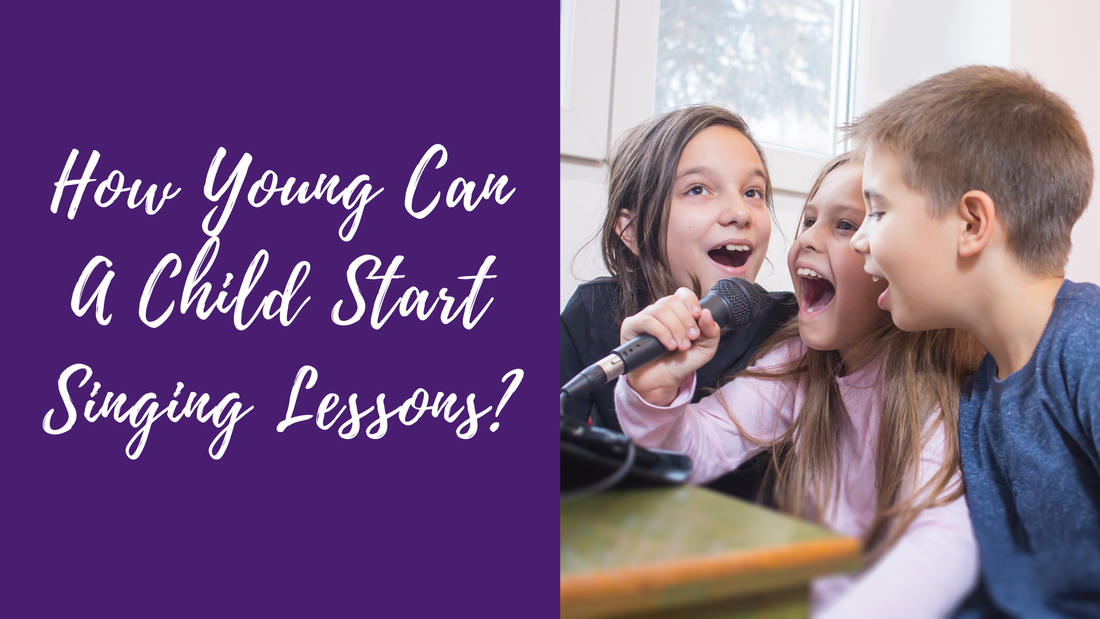
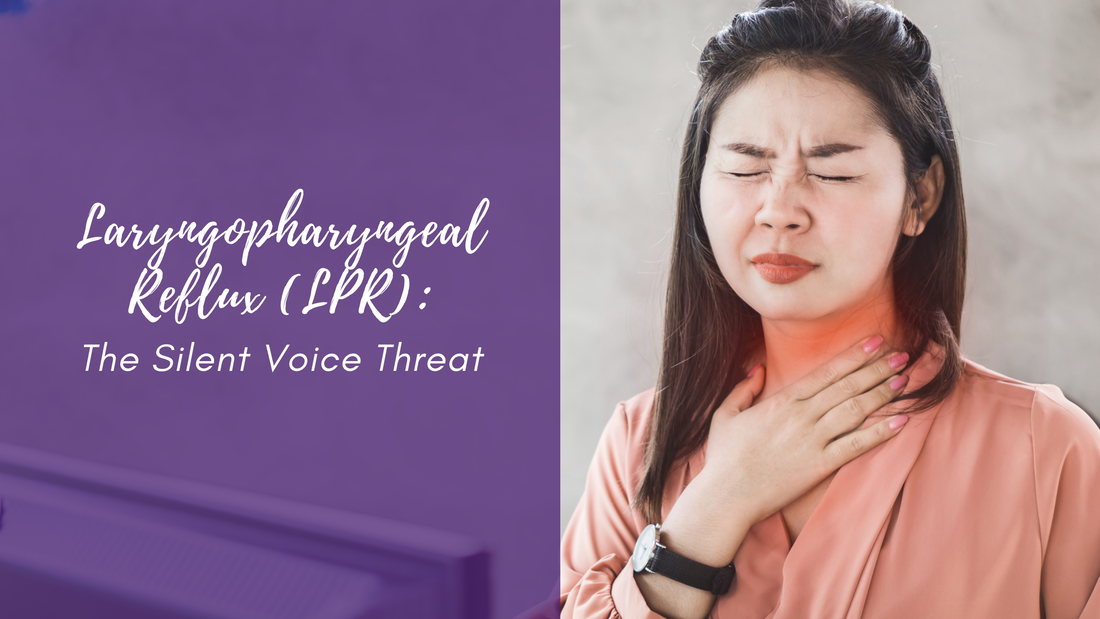
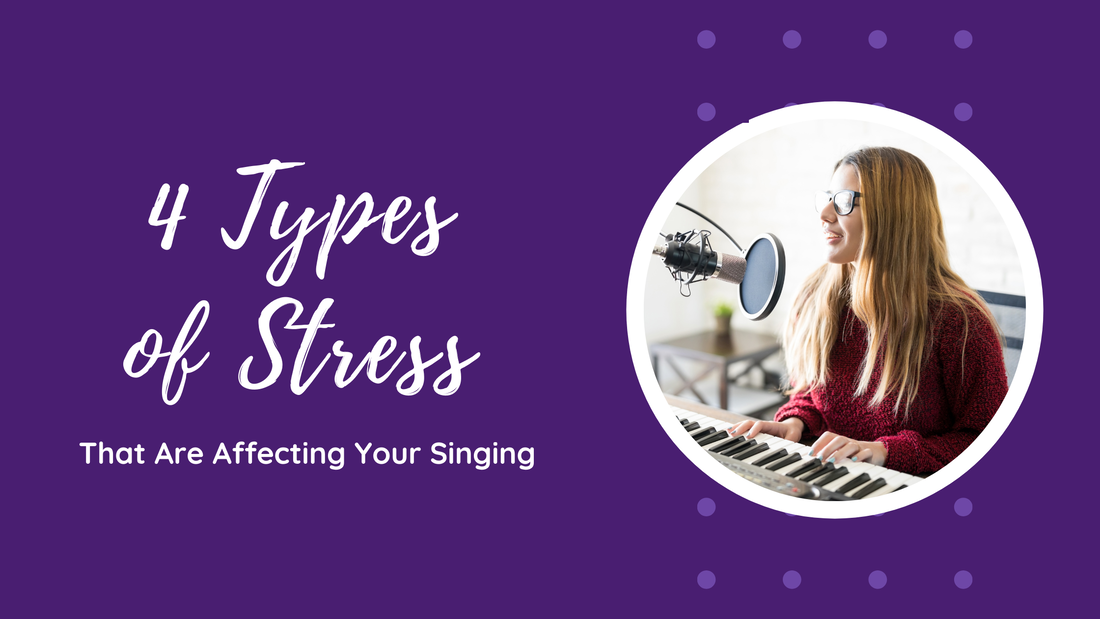
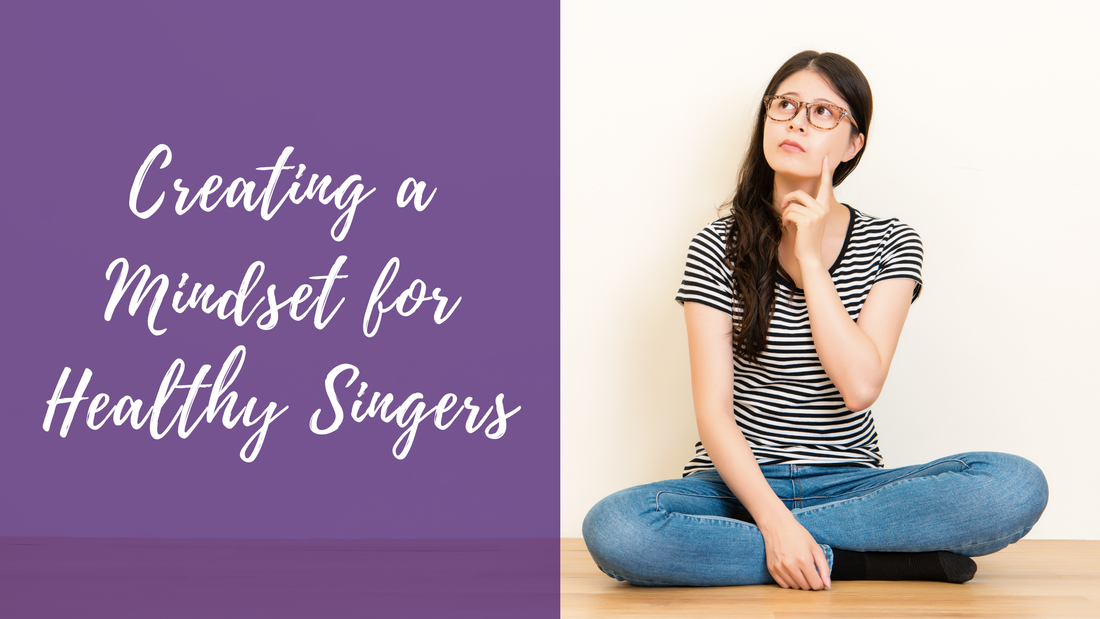
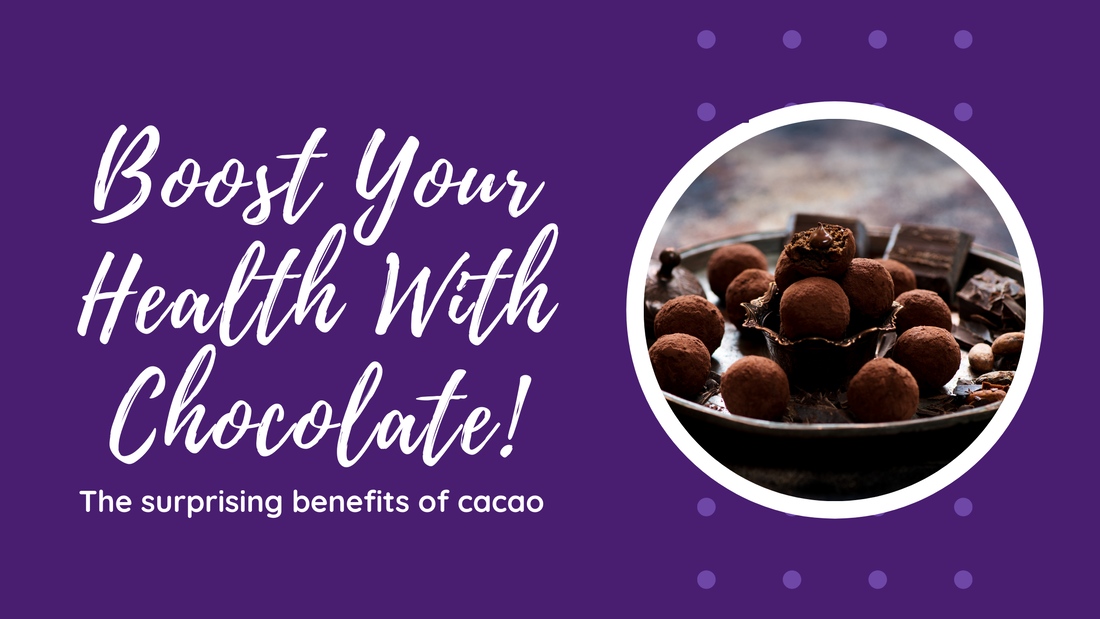
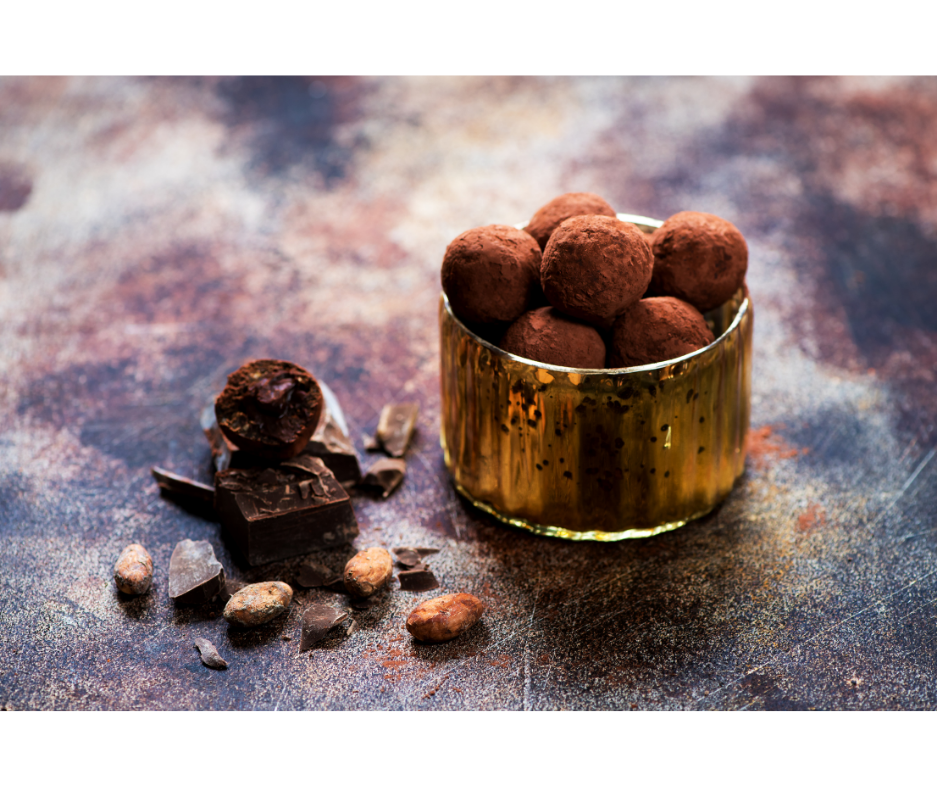

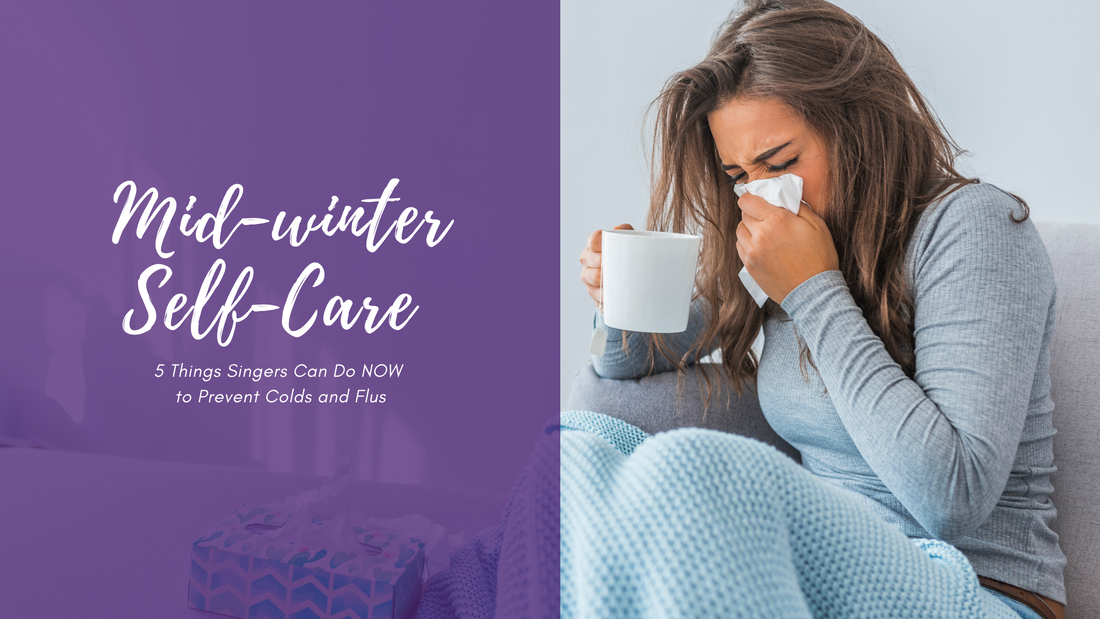
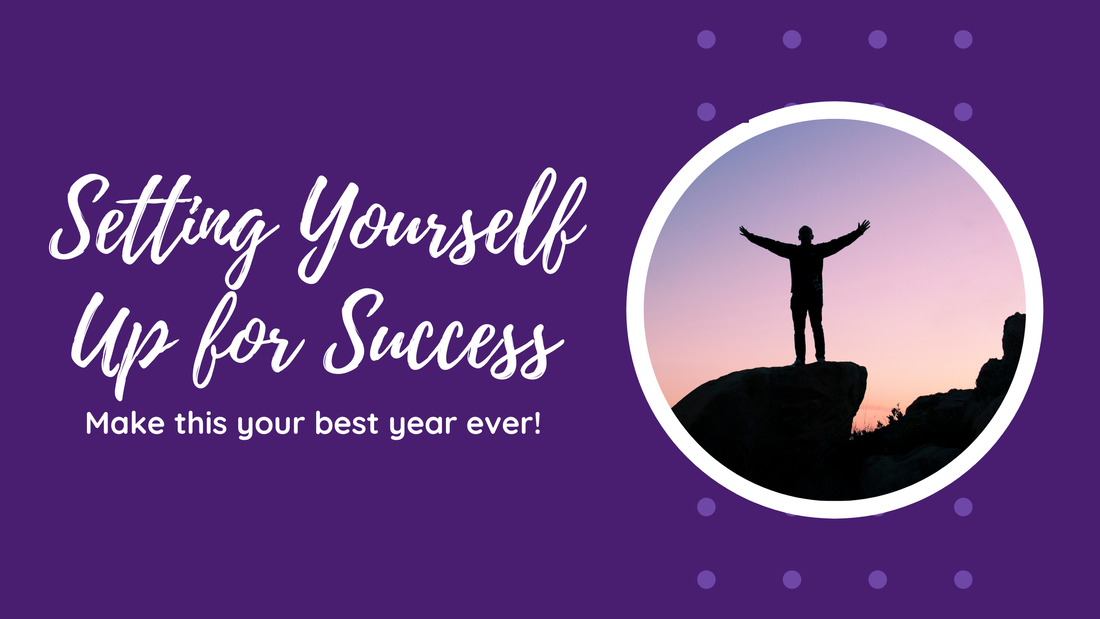
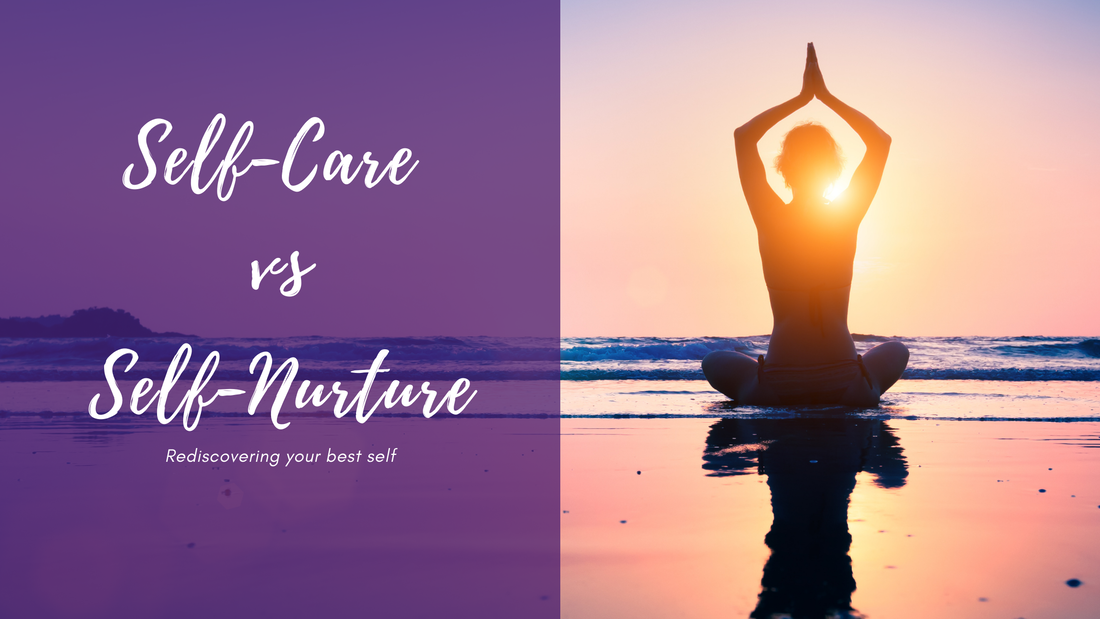


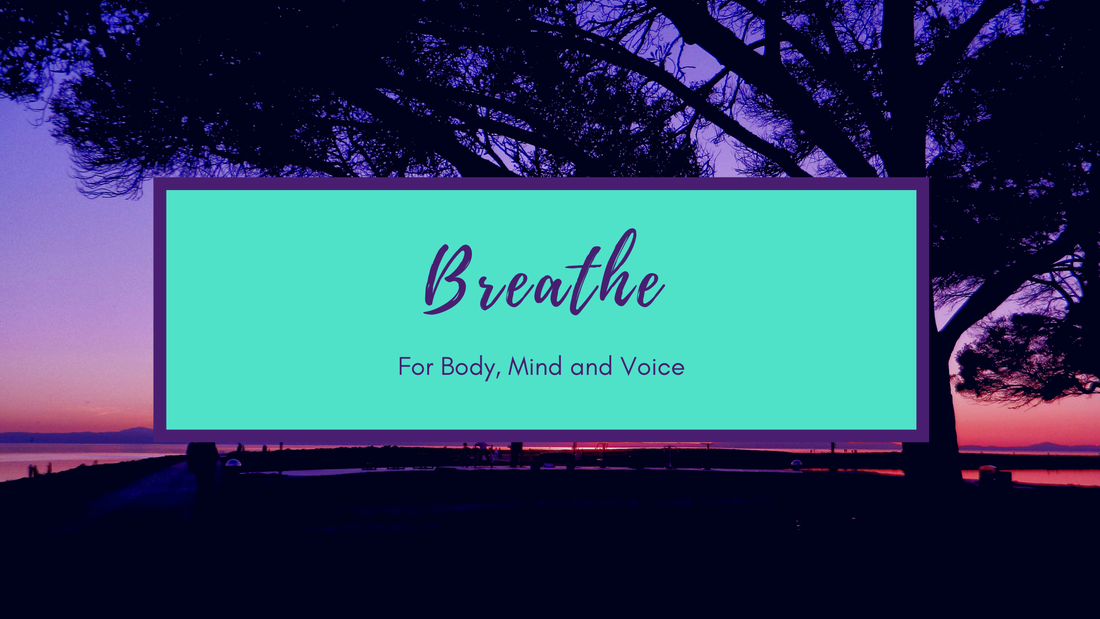
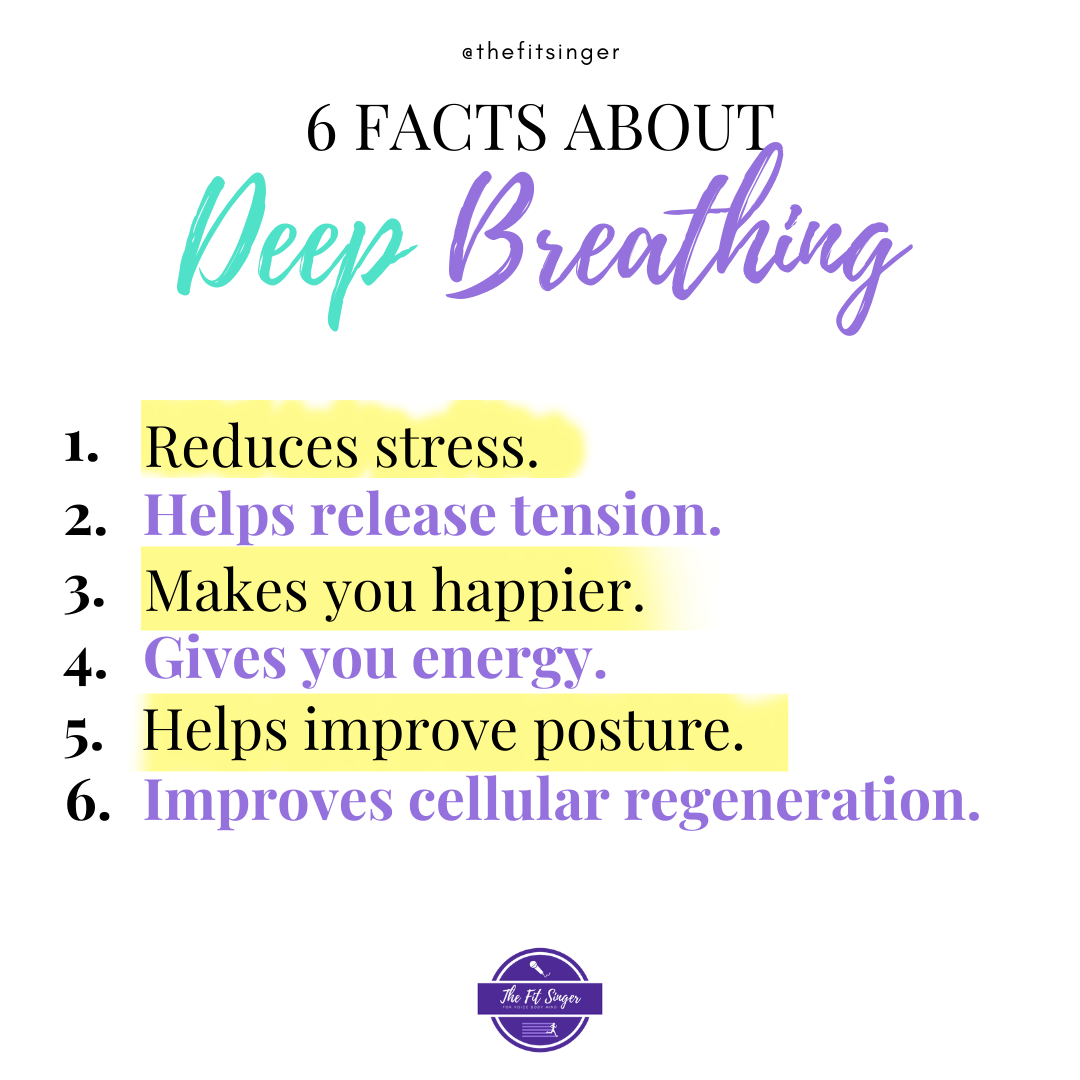

 RSS Feed
RSS Feed

